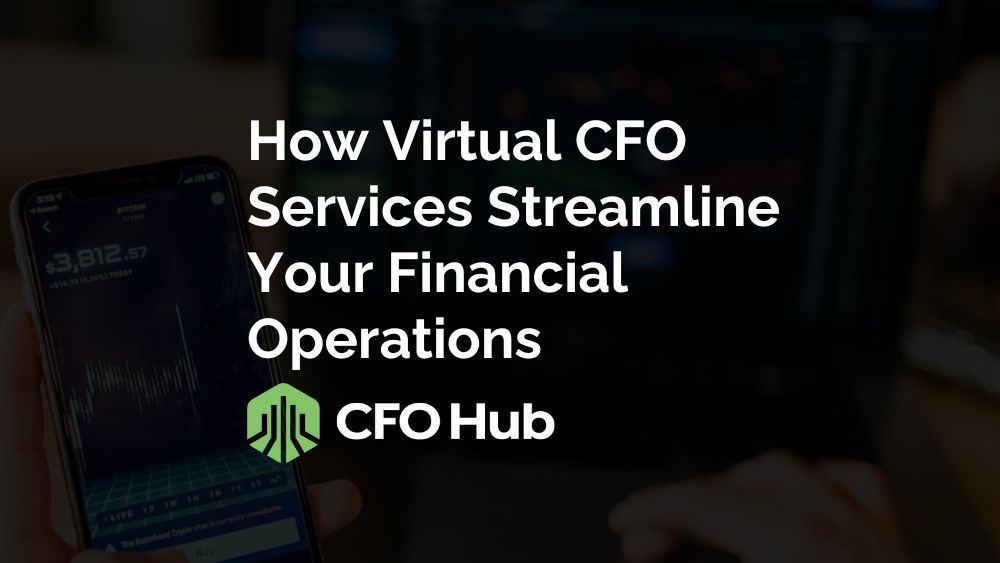Options trading is a complex and dynamic field that demands strategic decision-making and risk management. Leveraging the expertise of a Chief Financial Officer (CFO) can provide a significant edge because they are adept at analyzing market conditions and assessing financial risks.
This article explores how CFO skills can help you navigate the uncertainties in the market and improve your options trading decisions.
Why Rely on CFO Expertise?
Options trading involves buying and selling contracts that grant the right, but not the obligation, to buy or sell an underlying asset at a predetermined price within a specific timeframe. This financial instrument is challenging due to its inherent complexity, high volatility, and the need for precise market predictions.
Thus, making better decisions in options trading is crucial to mitigate risks and maximize profits, and that’s why you need trading strategies. For instance, WallStreetZen.com found that options trading alerts can increase successful trades by providing timely and actionable information to traders.
In addition, you can get expert advice from a CFO. Why? For the following reasons:
To Understand Market Conditions
Understanding market conditions is a critical aspect of successful options trading, and a CFO’s expertise can be invaluable in this regard. One key area where CFOs excel is analyzing economic indicators. They monitor vital metrics such as GDP, unemployment rates, and inflation to gauge the economy.
For instance, a rising GDP often signals economic growth, which can lead to bullish market conditions, while increasing unemployment rates might indicate economic downturns, leading to bearish markets. Inflation rates also play a crucial role, as high inflation can erode purchasing power and affect corporate profits, impacting stock prices and options values. By understanding these indicators, CFOs can anticipate market shifts and adjust trading strategies accordingly.
In addition to economic indicators, CFOs employ various techniques for market trend analysis. They use historical data, financial models, and advanced analytics to identify patterns and trends within the market. Techniques such as moving averages, trend lines, and regression analysis help them understand the market’s direction and momentum.
By interpreting these trends, CFOs can predict future market movements accurately. For example, a consistent upward trend might indicate a favorable environment for call options, while a downward trend could signal opportunities for put options.
Risk Assessment and Management
Options trading involves various risks, including market, credit, and liquidity risks. Market risk arises from the underlying asset’s volatility, while credit risk relates to the possibility of a counterparty defaulting on its obligation. On the other hand, liquidity risk pertains to the ease with which an asset can be bought or sold without affecting its price. CFOs can identify these potential risks through comprehensive financial analysis and market research.
Once they identify them, CFOs use advanced tools and models to quantify them accurately. For instance, they employ methodologies such as Value at Risk (VaR) and stress testing to measure the potential impact of adverse market conditions on their portfolios.
In addition to identifying and quantifying risks, CFOs develop robust risk mitigation strategies to protect against potential losses. They include diversification, hedging, and setting stop-loss orders. By applying these risk mitigation techniques, CFOs help you manage risk exposure effectively, leading to more stable and profitable options trading outcomes.
Financial Analysis and Valuation
One critical area where CFOs excel is fundamental analysis. They meticulously examine financial statements, assess company performance, and evaluate various financial ratios to determine the intrinsic value of an asset. By analyzing factors such as revenue, earnings, debt levels, and cash flow, CFOs can identify undervalued or overvalued assets.
This thorough understanding of a company’s financial health allows for more informed options trading choices, such as selecting the right stocks to buy or sell options on and determining the appropriate strike prices and expiration dates.
In addition to fundamental analysis, CFOs employ technical analysis to forecast future market movements. They use charts, patterns, and technical indicators to analyze historical price data and trading volumes.
Techniques such as moving averages, relative strength index (RSI), and Bollinger Bands help CFOs identify trends, support and resistance levels, and potential price reversals. By interpreting these technical signals, CFOs can predict precise market direction and timing, helping you determine optimal entry and exit points.
Conclusion
A CFO’s expertise is beneficial to an options trader for several reasons. For instance, CFOs have a deep understanding of market conditions, allowing them to analyze economic indicators and market trends effectively, which leads to more informed trading decisions. Secondly, their knowledge and skills in risk assessment and management help identify, quantify, and mitigate various trading risks, ensuring better protection and stability for your investments.
CFOs excel in financial analysis and valuation, combining fundamental and technical analysis to create comprehensive trading strategies that enhance profitability and manage risks efficiently. Additionally, CFOs understand the importance of data analytics and analyze vast amounts of market data to identify patterns, trends, and correlations.

Jack Perkins, CPA founded CFO Hub to provide strategic finance and accounting services to enterprises of all sizes. Prior to founding CFO Hub, Jack served as the CFO and Controller of rapidly growing enterprises in California. Jack's written content has been featured in Forbes, Entrepreneur, and several other notable publications.
Visit Jack's Expert Hub to learn more about his experience and read more of his editorial content

